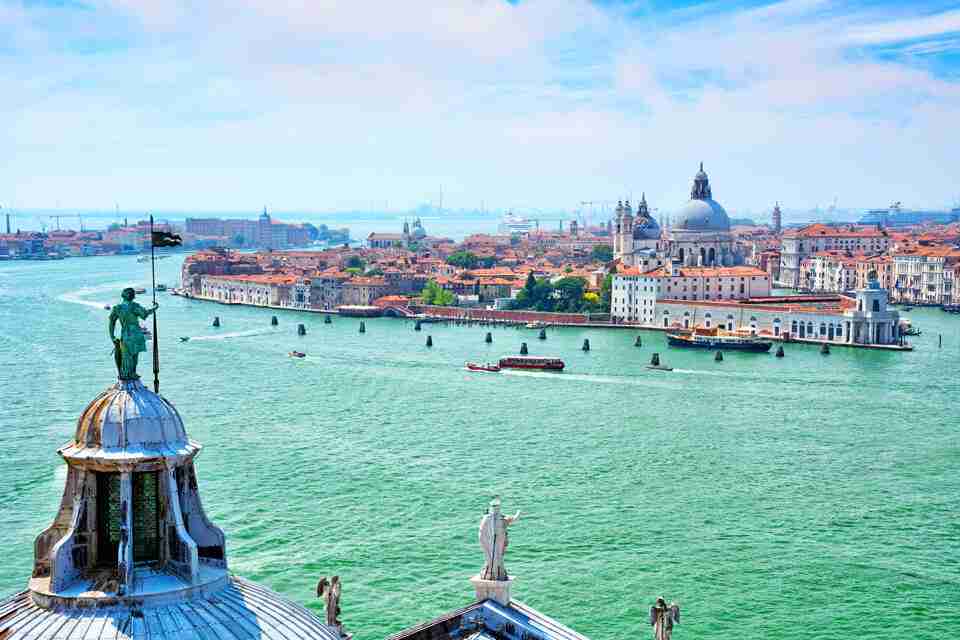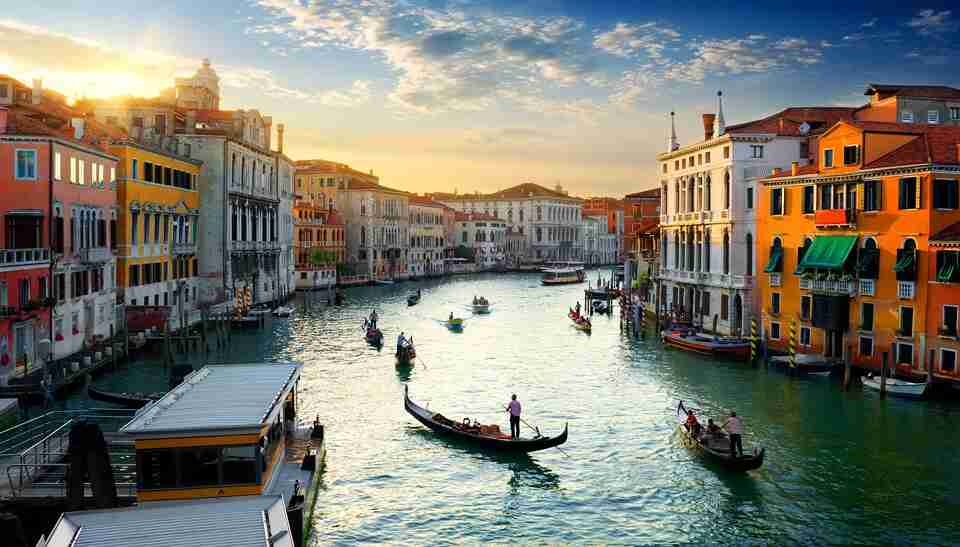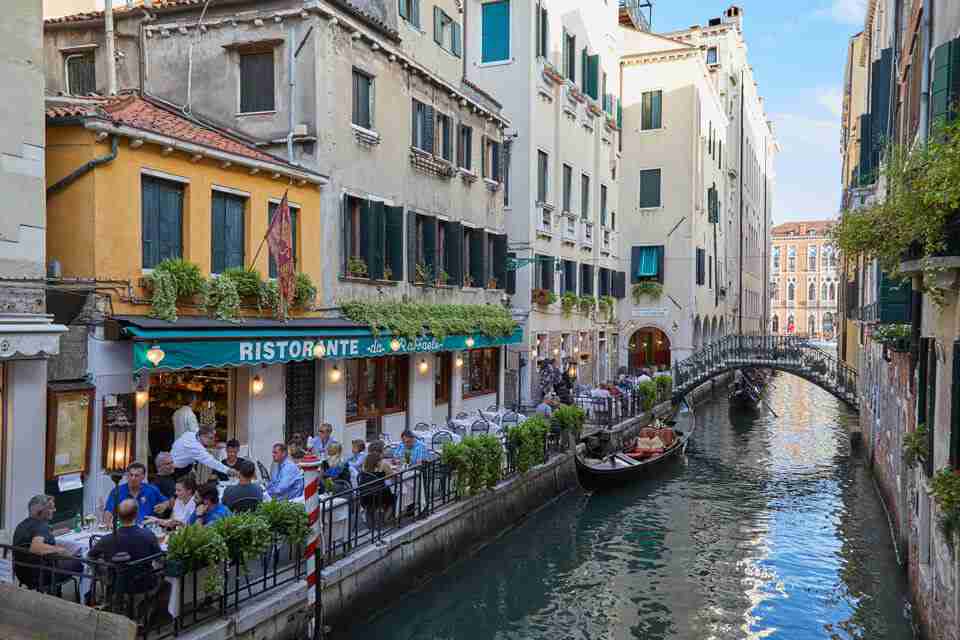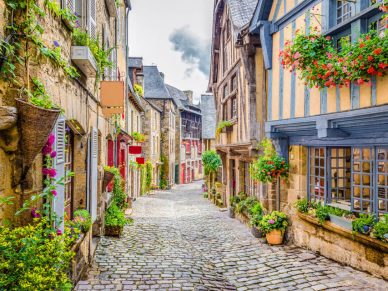The travel industry has big plans for its big return to the world stage

It’s a vision millions of visitors have held in their minds before the first visit. Once you’ve heard about the historic canals of Venice, you can’t help but imagine yourself on a stroll along them. It’s a beautiful sunlit day, and gondoliers ply their trade cheerfully across the waterways just as they have for hundreds of years. You stop at a cafe for seafood risotto and a glass of Soave and admire the scene. Perhaps you meet a charming local who shows you around the most romantic city in the world.
That’s the way Venice has been sold for decades, so well in fact that it became nearly impossible for such a scene to actually take place. Despite what you may have dreamt, prior to the COVID-19 pandemic, a stroll through Venice involved fighting through crowds as they poured out of their Airbnbs, cruise ships, and tour buses. Vendors hawking T-shirts and cheap jewelry greeted you at every turn. Good luck running into that local to whisk you away from all that and show you the real Venice. On a given day, there could easily have been as many tourists flooding the city as there were residents on Venice island.
Venice had become a theme park rather than a living city. It was losing the very quality that made it a place worth visiting in the first place. Reversing that trend is the idea behind sustainable travel and the conscious comeback the travel industry is mounting.
In Venice, where the people flocking to see the awe-inspiring mastery it took to raise such a place from the islands of a lagoon were sowing the seeds of the city’s destruction by sailing through the Giudecca Canal on large cruise ships, contributing to a rise in water level that threatened to render Venice uninhabitable. Though the MOSE system at long last appears to be protecting the island from acqua alta, the city of fragile beauty still needs protection. The pandemic has given Venice, Barcelona, and other European cities plagued by overtourism a unique opportunity to reimagine their futures and discover a balance between having a steady source of tourism income and having a world-class city that is pleasant to both visit and live in.
The Problem of Undertourism

While the initial halt of travel provided a welcome break in overtouristed cities, the prolonged absence of travel has hurt the economy. “Our planet’s real economic recovery is going to come once we all have a conscious comeback,” Jessica Hall Upchurch of luxury travel consortium Virtuoso said.
With 80% of countries around the world counting tourism among their top five industries before the pandemic, it isn’t just impractical that people stop traveling internationally, it would be detrimental to developing nations. One in 10 jobs worldwide was related to tourism, and among new jobs the figure was 1 in 5. Undertourism became a huge problem in developing countries.
“Once the pandemic took away our ability to travel, we saw tens of thousands of people become impoverished and an alarming rise in poaching,” Big Five Tours & Expeditions president Ashish Sanghrajka said. “Sustainable travel represents the single biggest resistance to these issues. Employment opportunities created by tourism give locals a vital seat at the table. This is still the best way for travel dollars to directly reach Indigenous communities.”
Sanghrajka said a silver lining of the pandemic is that it’s made getting off the beaten track all the more important. In crowded European cities, that means exploring the nearby countryside and getting a sense of how locals live their lives. On safari, it means visiting a village and interacting with people whose livelihood depends on the land. Stewardship of nature remains a crucial element of sustainability. Nature-based travel not only combats overtourism, it helps travelers cultivate a respect for nature.
After a zoonotic viral pandemic, there needs to be more awareness of the consequences of human encroachment on the natural world. Climate change-driven fires in the Amazon, Australia, and the American West, combined with ever more devastating hurricane seasons in the Atlantic and Gulf of Mexico have underscored the need for human behavior to change.
“Travelers are re-evaluating their priorities. Moving forward, they’ll be seeking out companies that go beyond comfort and luxury to provide meaningful experiences and show how their journeys support local economies,” Aqua Expeditions founder and CEO Francesco Galli Zugaro said.
The pandemic has given us a chance to reimagine a world better than the one that preceded it. It’s reinforced the importance of balance, wellness, and nature in travelers’ minds. For travel companies, that means reimagining the way they do business.
“Much of the world has been concentrated on profit rather than respect. It’s time to change. It’s time to be sustainable, for real,” Luca Perfetto, CEO and co-founder of Italian destination management company Florencetown said.
Sustainability = Profitability

Perfetto’s sentiments were echoed by &Beyond executive chairman Joss Kent during Virtuoso’s virtual “Under One Sky” 2020 event when he urged the industry to focus on a real sustainable impact, rather than a marketing slogan. Kent has spearheaded the company’s efforts to “align purpose and profit.” Over a 10-year period pre-pandemic, &Beyond posted a 15% compound annual growth rate with an EBITDA compound annual growth rate of 34% and 48% EBITDA margin.
“Any banker who looks at that—take the &Beyond name off and ask them, ‘What kind of company is that?’—I can promise you they would not say this is a conservation, sustainability enterprise,” he said.
At the same time, &Beyond brought running water to 56,000 people in communities near its lodges, built 285 classrooms in them and reduced its plastic use by 99%. From 2015-19, the company invested $28 million in lodges, with a 40% return on that investment.
“If you think you have to trade profit versus purpose, think again. The more you focus on doing good, the better you’re going to financially.”
Wall Street has figured that out too, said Greenbiz chairman and executive editor Joel Makower. “Sustainability has moved from the margins to the mainstream.” Sustainability, investors realize, is good for profitability, growth, and innovation and sustainable companies have better risk profiles. “That’s creating this stampede, in effect, for, ‘How do you find those companies, and how do you invest in them?’”
While more are sure to join, there is a host of companies already pairing purpose and profitability.
















Leave a Reply